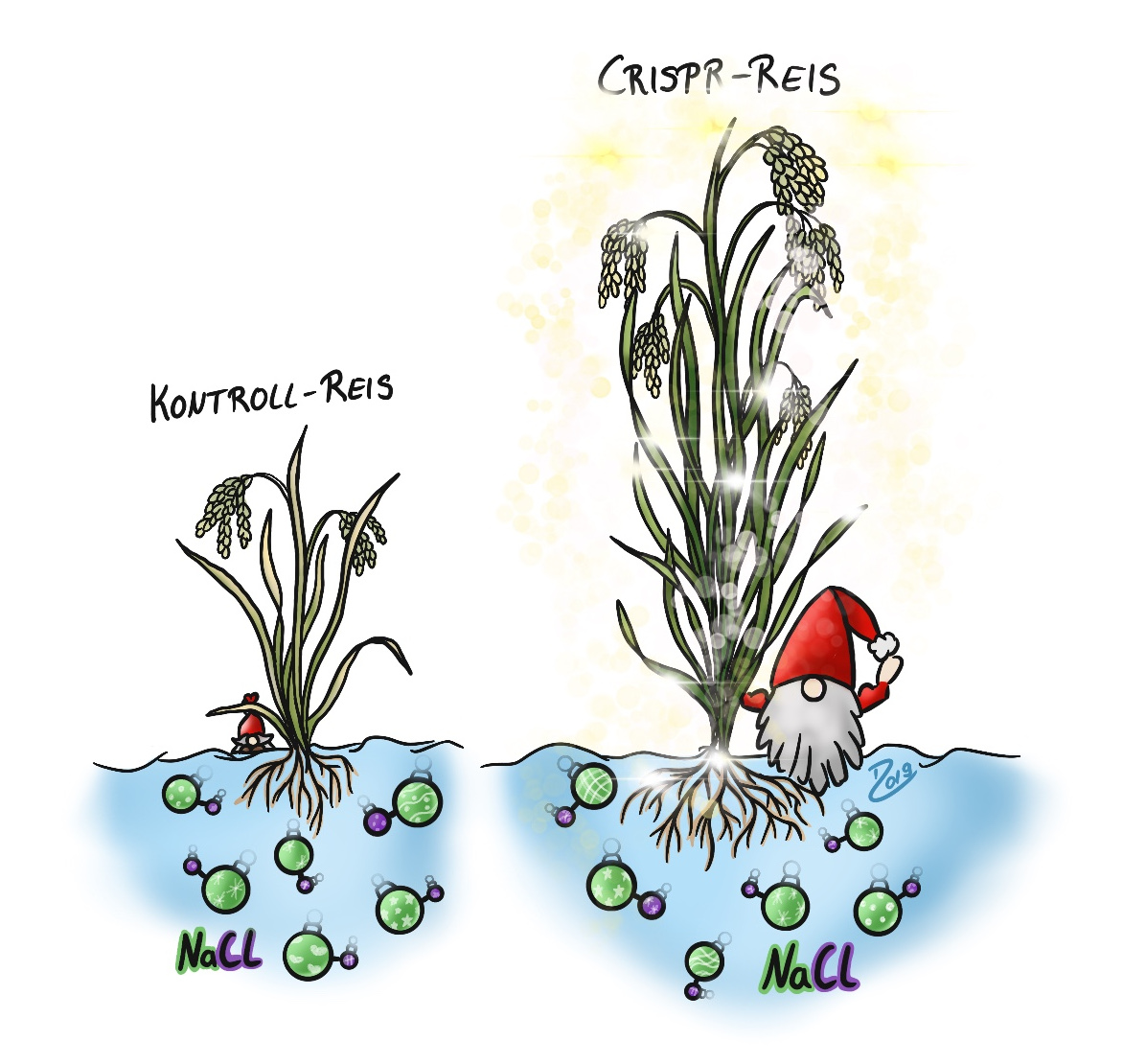4
back


Crop: Rice (Oryza sativa)
Property: Increased salt tolerance
Abiotic stress refers to environmental factors in which organisms are not directly involved. In plants, abiotic stress can occur due to drought, heat, cold or a high salt concentration in the soil. Of these conditions, salt content represents one of the greatest threats to plant production, as most cultivated plants cannot grow if the salinity of the soil is too high. Over the past 20 years, more than 2,000 hectares of fertile land worldwide have become unusable every day due to salinization (often as a result of years of irrigation). However, in recent years, several genes have been identified that influence the salt tolerance of plants. Chinese scientists from Huazhong Agricultural University successfully eliminated one of these genes with CRISPR/Cas, which resulted in an improved tolerance to elevated salt concentrations in the edited plants.
Publication
| Title | Enhanced rice salinity tolerance via CRISPR/Cas9-targeted mutagenesis of the OsRR22 gene |  |
| Authors | Anning Zhang et al. | |
| Country | China | |
| Journal | Molecular Breeding | |
| Year | 2019 | |
| DOI | doi:10.1007/s11032-019-0954-y |
